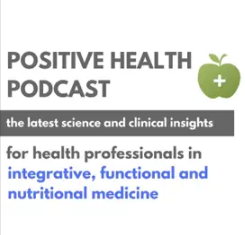
Nutrition and lifestyle factors to reduce sperm DNA fragmentation
April 14, 2025
Long Covid Advocacy Ireland – Functional Medicine Testing Webinar
July 19, 2025ApoB and heart health

While cholesterol is the most well-known marker for cardiovascular health, it is just one of several indicators. However, scientists now believe it is not giving us the full picture. In 2019, the European Society of Cardiology/European Atherosclerosis Society stated that apolipoprotein B (ApoB) was a more accurate marker of cardiovascular risk than low‐density lipoprotein (LDL) cholesterol, often termed ‘bad cholesterol’ 1.
When cholesterol invades the blood vessel wall, it builds up, just like a boil beneath the surface of the skin. This becomes angry and inflamed over time, and unstable until eventually, the boil pops. This triggers blood clotting in the vessel and ultimately can lead to a blockage in the vessel, causing heart attack or stroke in some cases.
What is ApoB?
ApoB is the protein that carries the ‘bad cholesterol’ through the vessel wall. Think of it like the car carrying the cholesterol as a passenger. The number of cars breaking through the barrier is more important than the number of passengers. So, while it is still really important to test cholesterol, the markers we use to analyse cardiovascular risk is evolving thanks to research. The number of ApoB particles circulating within our blood vessels is the primary determinant of the number of ApoB particles that will enter and become trapped within the arterial wall. Essentially, the higher the number of ApoB present, the greater the risk of atherosclerosis (plaque buildup in arteries), heart attack, and stroke.
It is worth nothing, 1 in 4 women die from heart disease and stroke, the same rate as in men. However, research has revealed that heart disease in women has long been under-researched, under-diagnosed, and under-treated 2. As women enter menopause, their risk of heart disease and stroke increases. But the good news is that 80% of premature heart disease and stroke can be prevented by a healthy lifestyle2 and testing can help clarify your risk.
Testing is important
In our clinic we have a Heart Health profile test that goes beyond standard cholesterol markers like HDL, LDL, VLDL, and triglycerides. It also includes the following:
- ApoB – protein that carries ‘bad cholesterol’ through the blood vessel wall
- Lipoprotein(a) or Lp(a) – lipoprotein that carries cholesterol in the blood and is often genetically determined
- Asymmetric Dimethylarginine (ADMA) – amino acid that is important for healthy blood vessel flexibility
- Homocysteine – amino acid associated with processes that can damage blood vessels and contribute to inflammation of the cholesterol plaque
These factors play a crucial role in blood flow and serve as independent indicators of cardiovascular health.
If you would like to learn more about testing and how nutrient and lifestyle changes can be helpful for cholesterol management, including testing, please get in touch.
References
- Devaraj, S, Semaan, J.R and Jialal, I. Biochemistry, Apolipoprotein B. National Library for Medicine. Published 14 May 2023. https://www.ncbi.nlm.nih.gov/books/NBK538139/
- Glavinovic, T et al. Physiological Bases for the Superiority of Apolipoprotein B Over Low‐Density Lipoprotein Cholesterol and Non–High‐Density Lipoprotein Cholesterol as a Marker of Cardiovascular Risk. Journal of the American Heart Association. Volume 11, Number 20. https://doi.org/10.1161/JAHA.122.025858
- Irish Heart Foundation – irishheart.ie


